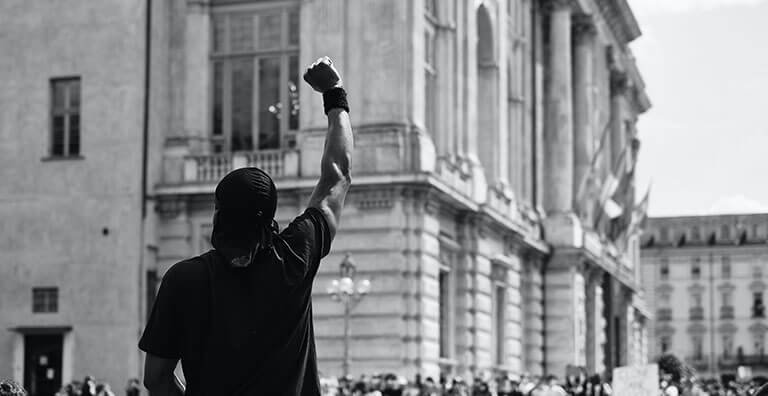
THIS MORTAL LIFE
DISCRIMINATION AND RACIAL JUSTICE
What does death anxiety have to do with discrimination? As it turns out, a lot. Becker said, “As we have learned, only scapegoats can relieve one of his own stark death fear: ‘I am threatened with death—let us kill plentifully’” (The Denial of Death).
Oppressing others and viewing one’s own group as superior is perhaps the “original sin” of death anxiety. The human species has sought power to achieve feelings of immortality across the centuries. Research shows that we are threatened by those we perceive as different because those differences inherently cause us to question our own worldview. Rather than coexist in uncertainty (which causes death anxiety), it is much easier to derogate, oppress, or annihilate the other. History tells the story for us.
The videotaped police killing of George Floyd last summer brought issues of race and racial justice back into the spotlight. For those who believed that America is “post-racism,” this was a stark reality check. For others, especially Black Americans and people of color, this was nothing new. Floyd’s killing was just the most recent in a pattern of killings of unarmed Black men and women by police.
When viewed through an existential lens, it is clear that the underlying fear that motivates oppressor groups is one that we all share: fear of death and insignificance.
Police killings and other injustices gave rise to the hashtag #BlackLivesMatter back in 2013, which has continued to draw backlash from those who view the group as dangerous and as a threat to existing power structures. As another example of stark contrasts in perception, many draw comparisons between the armed and aggressive police response to Black Lives Matter protests and the lack of police preparation and response to the almost all-white capital rioters on January 6th, 2021.
How can this movement for equality be viewed so differently depending on who you ask? In the following interviews, expert researchers and scholars will discuss the origins of discrimination in the context of existential anxiety, and how this gives rise to the stark contrast in movements we see today, from Black Lives Matter to white nationalist groups.
When viewed through an existential lens, it is clear that the underlying fear that motivates oppressor groups is one that we all share: fear of death and insignificance. Further understanding the underlying motivations behind discrimination and oppression, which involves reckoning with our mortality and what it really means to be human, is the only way to move towards overcoming our existential reflex to discriminate. As Sam Keen wrote at the end of the intro to The Denial of Death, “This knowledge may allow us to develop an “objective hatred” in which the hate object is not a human scapegoat but something impersonal like poverty, disease, oppression, or natural disasters. By making our inevitable hatred intelligent and informed we may be able to turn our destructive energy to a creative use” (Keen, 1973).



